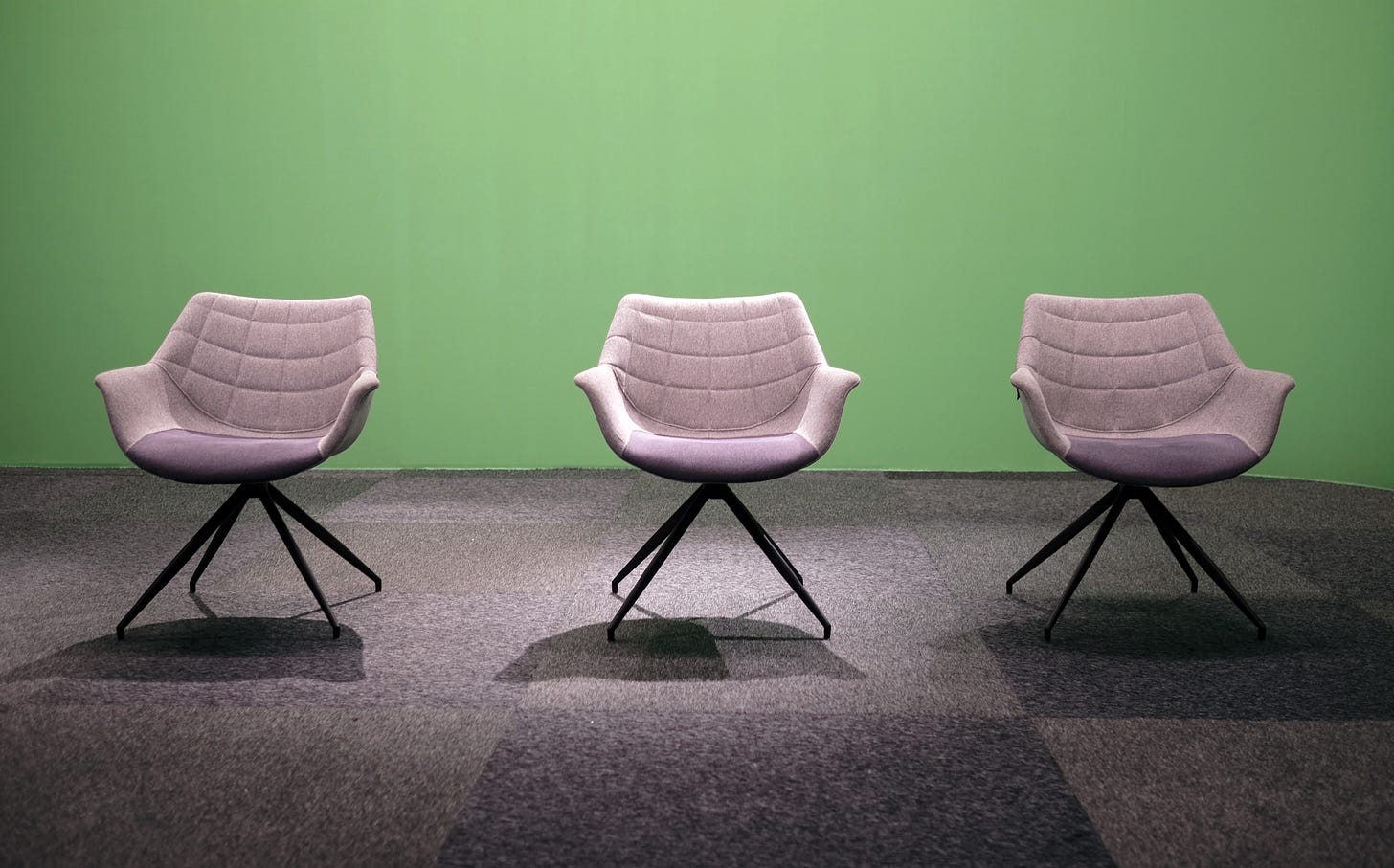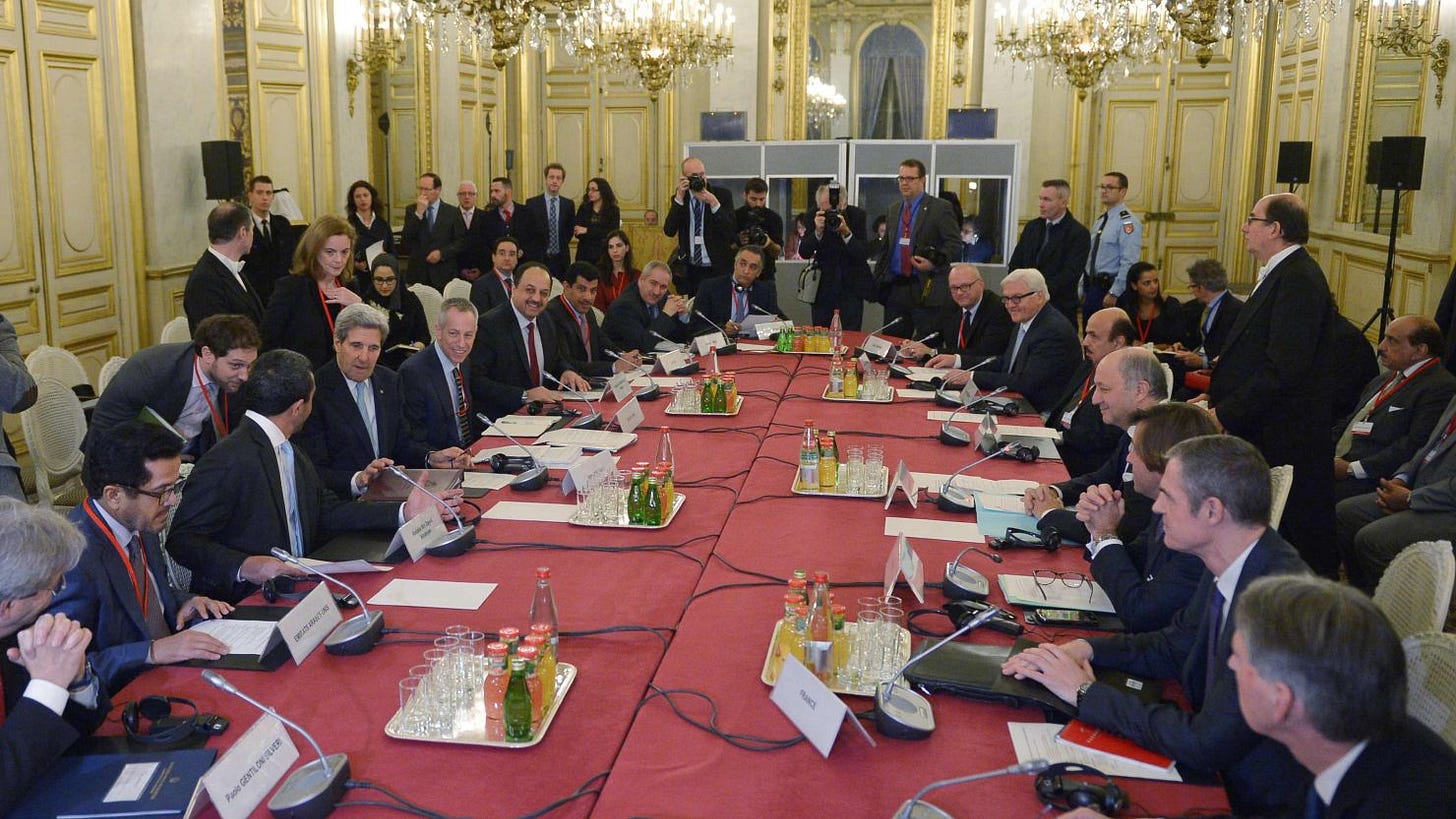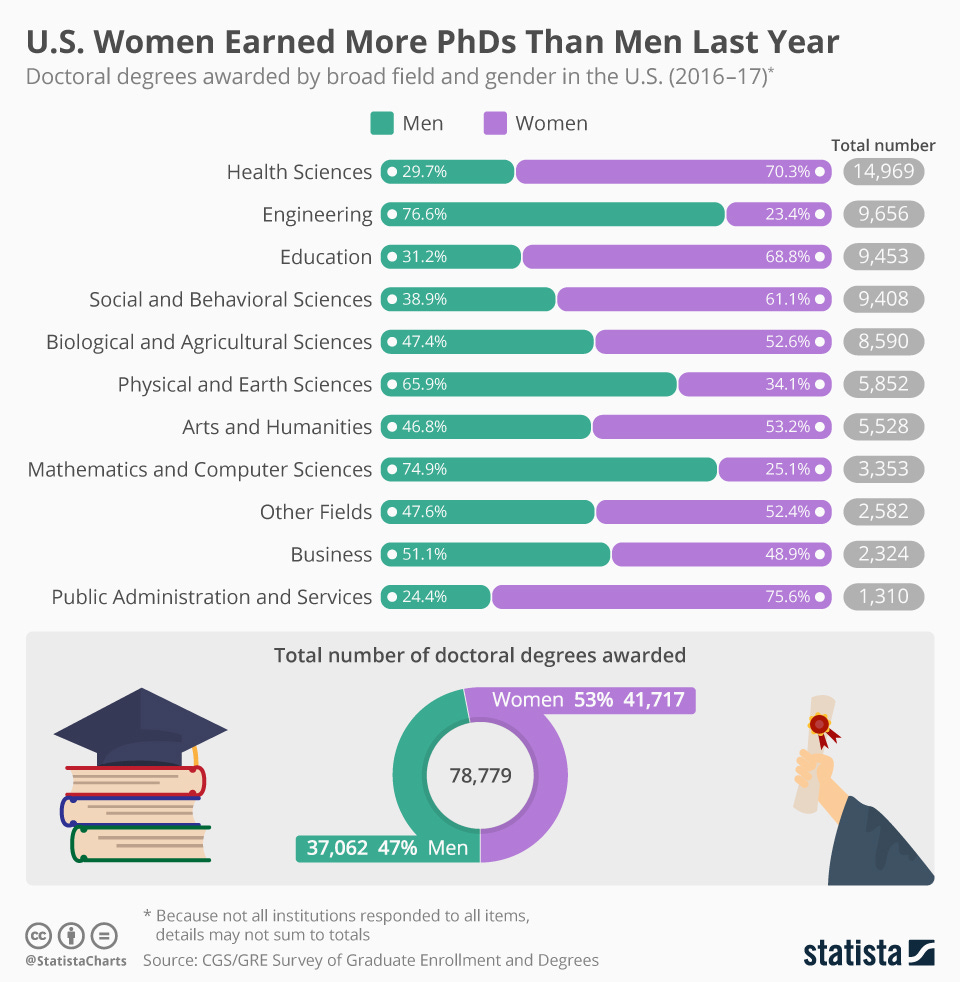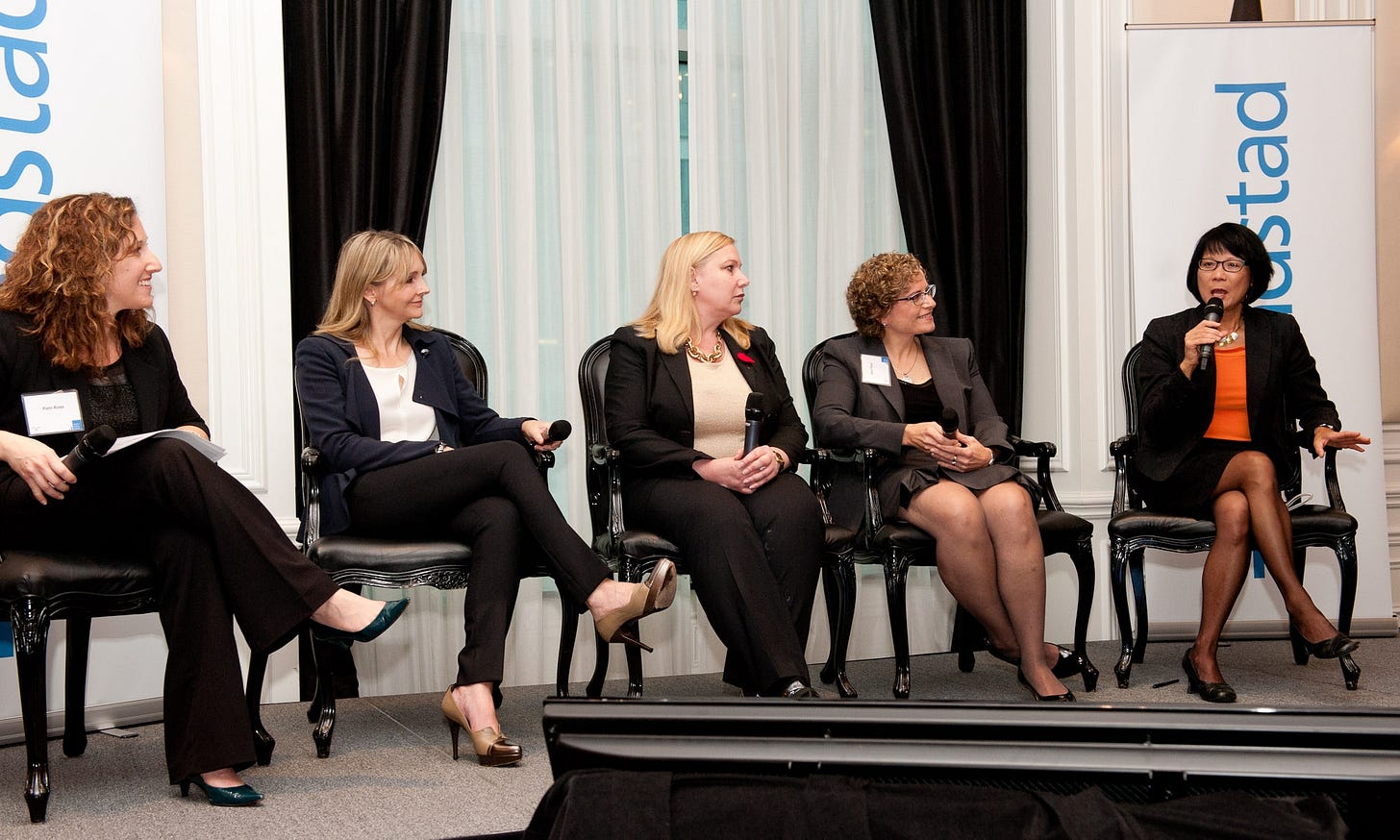Why Manels Aren't Necessarily Bad
Recently I received an email from Iona Italia, editor of Areo magazine, informing contributors that this fantastic liberal outlet would be wrapping up operations, and advising us to republish our posts somewhere else - on Substack for example. I’ve decided to take her advice, and re-post my half-dozen or so Areo pieces - including two articles that appeared anonymously - on here.
This is the fifth piece I published on Areo, on July 10th 2020, and the second that I published anonymously because I was afraid that it would negatively affect my Classics career. Now that I have been given notice by my university, though, I have decided to post it here under my name.
A couple of years ago, the Liverpool Classics listserv—an email list for classicists in the UK and worldwide—lit up with controversy about all-male panels, or manels. On 16 April 2018, the Classical Association of the UK put out a call for papers in which they stated: “Panels consisting only of men or only of women are unlikely to be selected unless a powerful case is made for an exception.” A month later, on 16 May, a revised version was sent out, this time stating: “Panels consisting only of men are unlikely to be selected unless a powerful case is made for an exception”: the phrase “or only of women” had been removed. It explained: “Following feedback and discussion we accept that we were wrong to initially discourage all-women panels.”
The decision to target all male panels but leave all-female panels be raises issues of its own. (For example, the possibility that it involves discrimination against men was raised by a distinguished female professor.) Both the Classical Association’s original call for papers and the revised version, though, were part of a broader movement against single-sex panels. So, should panels consisting of only one sex be considered beyond the pale?
As one contributor pointed out, single-sex panels of the size that are common at Classics conferences—four people—wouldn’t be uncommon, even if each panel slot had an exactly equal chance of being filled by a man or a woman. If there’s a 1 in 2 chance that a given panellist will be male, the probability of four panellists taken at random all being male is (1/2)4: 1 in 16. The probability of four panellists taken at random all being of the same sex (i.e. all male or all female) is twice that: 2 in 16 (or 1 in 8). So, at any conference with four-person panels, we’d expect to have two single-sex panels, one of which was all-male, as soon as we had more than 16 panels. And we’d expect that to occur purely by chance, even in a scenario in which there was an exactly equal chance of the contributors being male or female.
One respondent shared an interview with mathematician Greg Martin, who described the odds of a list of 20 speakers at a maths conference all being male happening by chance as “astronomical.” That is right—and would be the case even in conditions of complete equality. Imagine that each slot at a conference has a 1 in 2 chance of being filled by a man or a woman. With 20 speakers, the probability of them all being male by chance is now (1/2)20, that is, 1 in 1,048,576.
But this calculation applies to line-ups of 20 speakers, not to panel sessions, which are typically much smaller. The precise number of people makes a huge difference to the likelihood of getting an all-male line-up by chance, with the probability decreasing exponentially as you add slots. That means that, while four-man panels will quite commonly occur by chance, manels of more than 10 (the point at which the probability drops to below 1 in 1000) would be much rarer, even if every speaker had a 50:50 chance of being male or female.
In the real world, of course, we don’t always have an exactly 50:50 chance of finding a man or a woman in a particular context, and that means that even line-ups of more than 10 men aren’t necessarily a result of discrimination. That’s because there are other reasons besides discrimination that we might expect to see more men than women in a specific setting. One of these is differences in interest, one of the largest and most robust differences between the sexes. This can have quite dramatic effects on the numbers of men and women in particular professions: for example, men make up more than 90% of engineers in the UK, and women make up just short of 90% of nurses. (The idea that differences like these are due to cultural expectations can’t account for the fact that more patriarchal societies like Iran have more female engineers.)
Unsurprisingly, there can also be dramatic differences in how many men and women go into particular academic fields: for example, the proportion of maths PhDs awarded to men has hovered slightly above 70% in recent years. That on its own makes all-male panels or workshops significantly more likely—something that Greg Martin rightly takes into account in his model. A sex ratio of 70% doesn’t lower the “astronomical” odds of all-male panels of 20 very much, but it does make manels of four even more likely to happen by chance.
The number of men earning doctorates in Classics in the US has been only slightly higher than the number of women for a while now, so we shouldn’t expect the kind of overall ratio of male to female speakers in Classics that we would expect at a maths conference. (Classics faculty in the US are probably split about 58:42 between men and women at this point.) But, in any field, we might expect there to be higher ratios of men or women at individual panel sessions. That’s because we should expect panel sessions on particular topics to reflect the sex ratios of specific sub-fields or specialized areas of interest. And we know that sub-fields, like broader academic fields, can attract different numbers of men and women.
Do sub-fields of Classics attract different numbers of men and women? Apparently so. Ancient military history slants heavily male: a recent survey found that 88% of the contributors to companion volumes in that sub-discipline—such as The Blackwell Companion to the Punic Wars—were men. The same survey found a slight majority of the contributors to similar volumes on ancient art were women. I find that easy to believe, having attended a couple of excellent panels on ancient Greek art, consisting entirely of women. And I’ve also been at excellent sessions on ancient warfare consisting entirely of men—manels—which we should find even less suspicious, given the high male: female ratio in ancient military studies.
Sex-based discrimination could play a role in individual cases of manels—or it may play no role at all. It can’t be ruled out a priori. Equally, though, it can’t simply be assumed or asserted, especially when other factors might explain the pattern we see.
Maybe there have been so many manels at Classics conferences in recent years that these other factors can’t account for them all, and discrimination simply must have played a role—but I’ve yet to see the evidence of that. The way the Classical Association lists speakers by surname on its conference programmes makes it hard to do a quick count of manels and womanels. But one contributor to the debate on the Classics listserv distributed his tally of the total numbers of male and female speakers at recent Classical Association conferences: he found that women had outnumbered men by about 2–3% at the previous four meetings. That makes it unlikely that anti-female bias had a major effect on which speakers were selected.
In the absence of any evidence that manels at the Classical Association were a result of discrimination, what other arguments are there against them? A number of contributors to the listserv appealed to the idea that the field—or society as a whole—is biased against women. But, even if that’s the case, it doesn’t follow that all-male panels are examples of sexism, any more than the existence of racism would make panels of four white people racist. And, if all-male panels aren’t necessarily a result of sexism, it’s not clear why banning them would make Classics, or society, less sexist.
One final argument from the listserv, attributed to Professor Sarah Bond, was that “male graduate students walking into all-female panels don’t think to themselves, ‘I don’t belong in this field.’” This argument would make manels unacceptable even if they weren’t a product of discrimination. But the key psychological claim wasn’t backed up by any evidence. Is it inevitable that female graduate students will conclude that they don’t belong in Classics if they walk into a room where four men are talking about the subject, even when there are other rooms in the same building where four women are talking about Classics, and even if they’re at a conference where, as at recent Classical Association meetings, there are more women presenting than men overall? If it isn’t inevitable that young female classicists will think that way, it seems very unhelpful to assert that this is the way things have to be. After all, random assortments of four men crop up from time to time in everyday life, and the idea that they’re impossible to cope with doesn’t seem very empowering.
Even if manels don’t necessarily involve discrimination or do anything to harm women’s well-being, maybe we should just be extra cautious and ban them anyway. Are there any positive reasons for manels? It’s hard to think of any reason why an all-male panel or all-female panel would necessarily be better than a mixed one. But a certain number of single-sex panels are going to take place whenever individuals are able to gravitate to the fields and sub-fields they find most interesting, and whenever they’re allowed to form collaborations that they think will be beneficial to their work and to their field. They’re inevitable, in other words, when people are treated as equal and autonomous, with the freedom to choose what they want to work on and who they want to work with.
By letting people form the panels they want to form, then, rather than banning one type of single-sex panel by fiat, scholarly associations would be protecting freedom of choice—allowing both men and women to associate with and discuss ideas with whomever they want. They’d also be protecting high-quality research, which often comes from people simply looking at what ideas and thinkers might be profitably brought together, without getting hung up on people’s sex. And, most importantly, by allowing all-male panels as well as all-female ones, they’d be safeguarding equal opportunities for individuals of both sexes—the core principle, of course, of anti-sexism.




